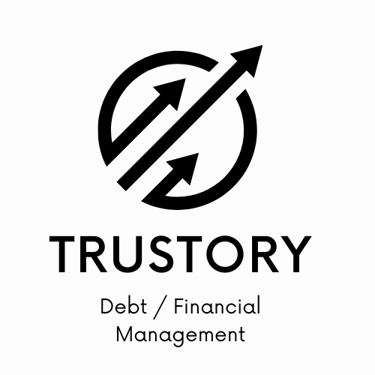Rising Household Debt in South Africa: What It Means for You and How to Take Control
What to do with the rising household debt
Charlé Lombard
10/8/20253 min read


Rising Household Debt in South Africa: What It Means for You and How to Take Control
South Africa’s major banks have reported a sharp rise in household debt and defaults, highlighting the growing financial pressure on ordinary consumers. If you’re struggling to keep up with monthly repayments, you’re not alone—and there are practical steps you can take to regain control. Contact Trustory for a free credit assessment.
What’s Happening With Household Debt in South Africa?
Recent financial results from South Africa’s leading banks reveal a worrying trend: more South Africans are falling behind on their debt repayments. The latest data shows:
Rising arrears: More consumers are missing payments on personal loans, credit cards, and store accounts.
Higher defaults: Banks are writing off more bad debt, especially in unsecured lending.
Growing debt-to-income ratio: South African households now owe more than 75% of their annual disposable income, one of the highest rates in emerging markets.
Why Is This Happening?
Several factors are driving this surge in household debt:
Stagnant incomes: Salaries have not kept pace with inflation, making it harder to cover rising living costs.
High interest rates: The South African Reserve Bank has kept interest rates high to fight inflation, increasing the cost of borrowing.
Load shedding and economic uncertainty: Ongoing power cuts and slow economic growth have led to job losses and reduced business activity.
How Does This Affect the Average South African?
If you’re feeling the pinch, you’re not alone. Here’s how rising household debt impacts everyday consumers:
Higher monthly repayments: As interest rates rise, so do your minimum payments on credit cards, loans, and mortgages.
Increased risk of legal action: Falling behind on payments can lead to creditor harassment, legal summons, and even asset repossession.
Stress and anxiety: Financial strain can take a toll on your mental health and family life.
Limited access to new credit: Missed payments and defaults hurt your credit score, making it harder to get approved for future loans.
What Can You Do If You’re Struggling With Debt?
1. Assess Your Situation Honestly
List all your debts, monthly payments, and interest rates.
Calculate your total monthly income and essential expenses.
2. Prioritise Your Payments
Pay for essentials first: housing, utilities, food, and transport.
Avoid taking on new debt to pay off old debt.
3. Consider Debt Review (Debt Counselling)
What is debt review?
Debt review is a legal process under the National Credit Act (NCA) that helps over-indebted consumers lower their monthly payments, protect their assets, and avoid legal action.How does it work?
A registered debt counsellor negotiates with your creditors to reduce your instalments and interest rates. You make one affordable monthly payment, which is distributed to your creditors.
4. Start Budgeting and Track Your Spending
Use a simple budget worksheet to see where your money goes.
Identify areas to cut back and set realistic savings goals.
5. Seek Professional Help
Don’t wait until you’re in crisis. Contact Trustory for a free credit assessment to explore your options.
Example: How Debt Review Can Lower Your Payments
Scenario Before Debt Review R8000
Under Debt Review R4500
Typical Savings R3500
Note: Actual savings depend on your unique situation and creditor agreements. Fees are regulated by the NCR.
Legal Protection and Your Rights
Protection from creditors: Once under debt review, creditors must stop legal action and harassment.
Asset protection: You typically keep your house and car if you stick to the new payment plan.
Regulated process: Only NCR-registered debt counsellors (like Trustory, NCRDC4243) can offer this service.
FAQs
Q: Will debt review affect my credit record?
A: Yes, you can’t take on new credit during debt review, but your record is restored once you complete the process and receive a clearance certificate.
Q: Can I exit debt review early?
A: Yes, if you settle your debts faster or your financial situation improves.
Q: What if I’m unemployed?
A: You may still qualify for debt review if you have some income (e.g., from a partner or side job). Speak to a counsellor for guidance.
Q: How do I know if a debt counsellor is legitimate?
A: Check their NCR registration number and look for transparent, regulated fees.
Trustory’s Approach: Lower Payments + Build Savings
At Trustory, we do more than just lower your monthly instalments. We help you:
Invest a portion of your savings in a risk-free option growing at ~10% p.a.
Learn budgeting and spending tracking skills for long-term financial health.
Stay in control—you decide how much to invest each month.
Next Steps
Free Credit Assessment
Ready to take control of your debt? Contact Trustory for a free credit assessment. Our team will review your situation and explain your options—no obligation, no judgment.
Sources:
National Credit Regulator (NCR)
South African Reserve Bank
Major South African bank financial reports (2025)
National Credit Act (NCA)
Struggling with debt? You’re not alone. Take the first step to financial freedom—Contact Trustory today.
Explore our professional services for your needs.
Contact
Articles
Admin@trustory.me
082 821 2911
© 2024. All rights reserved.
